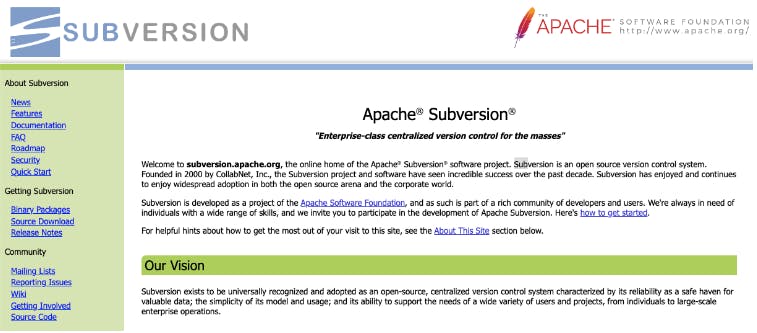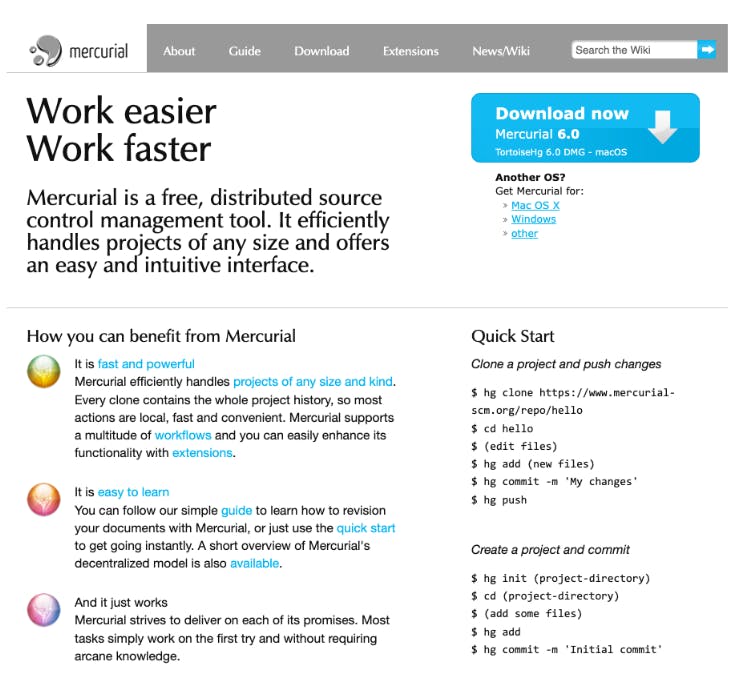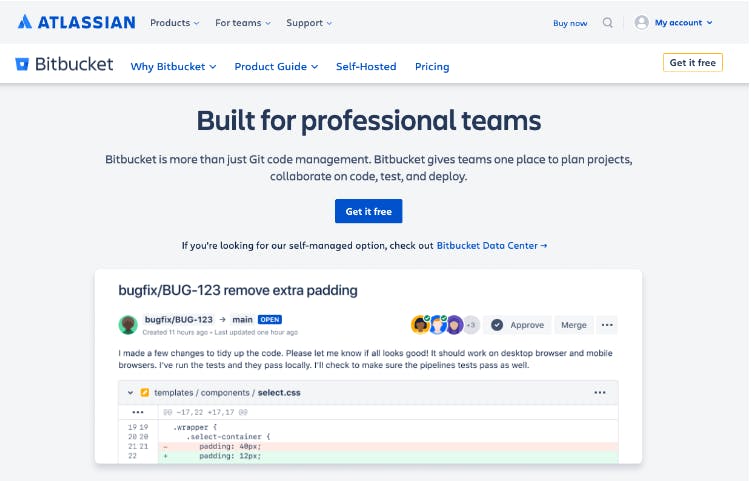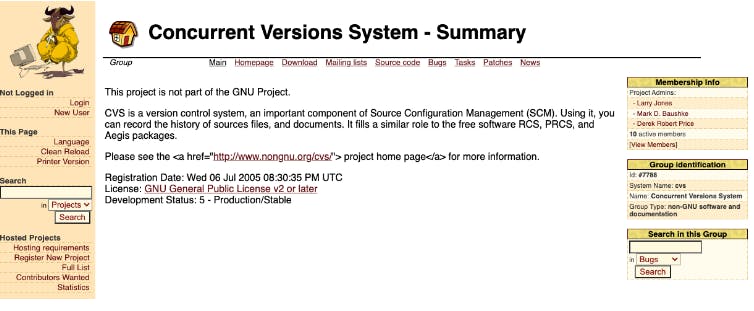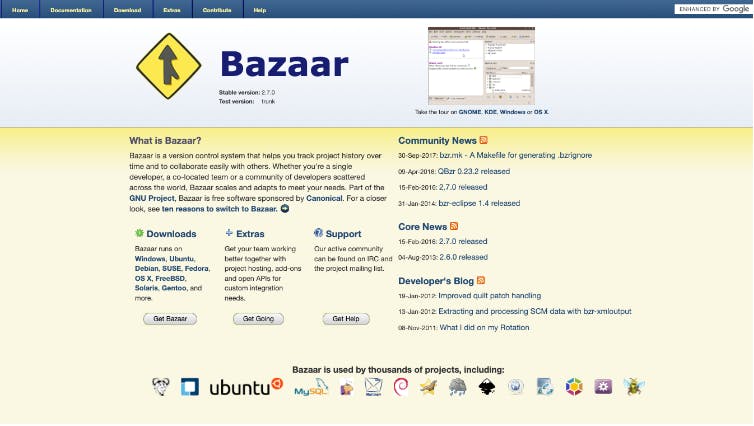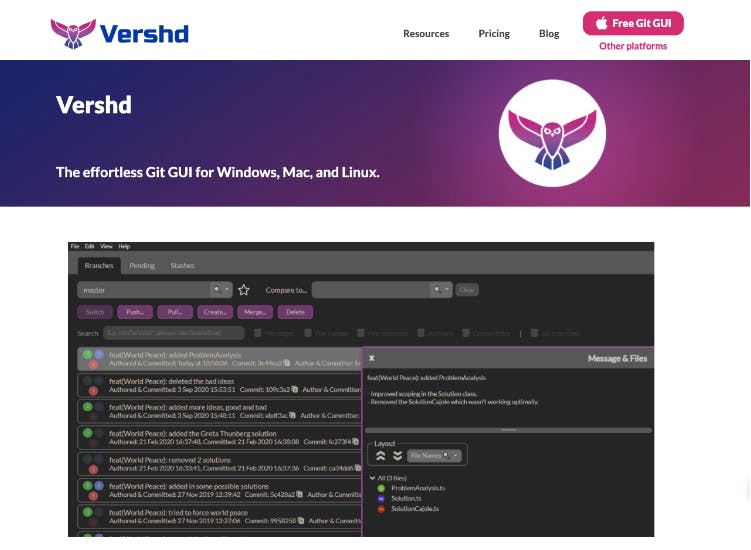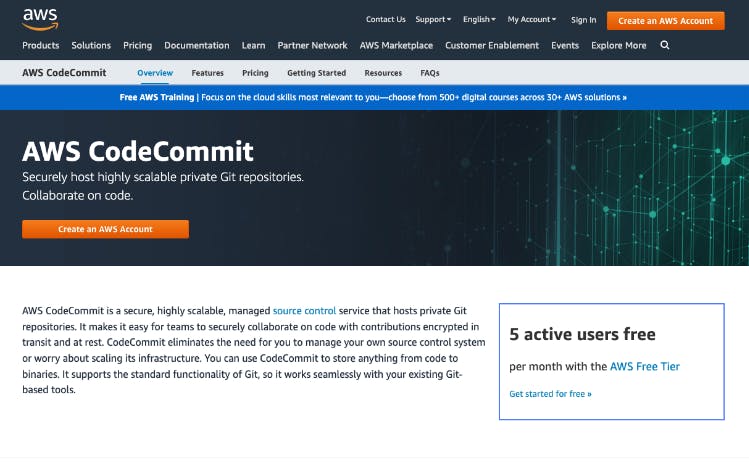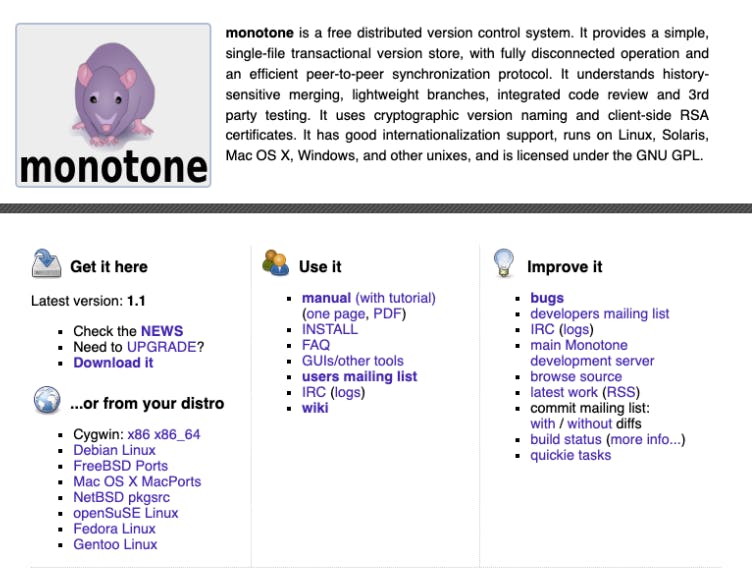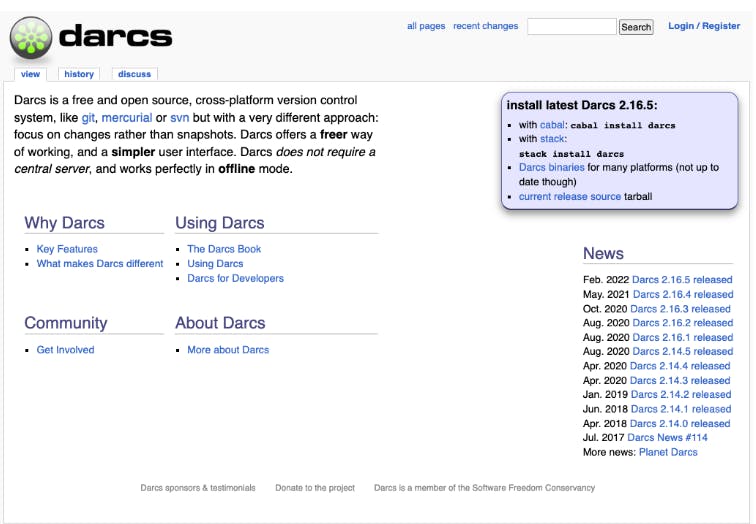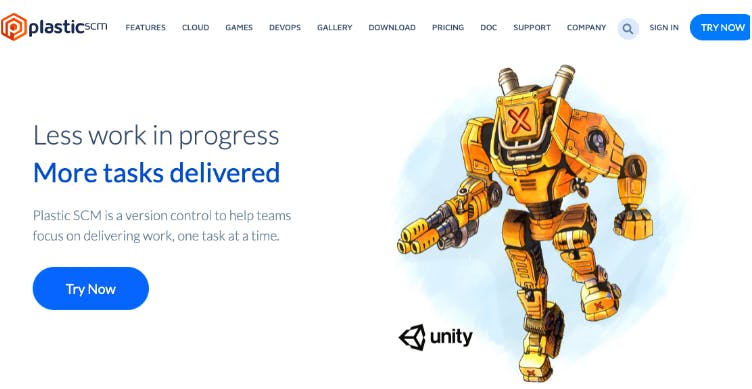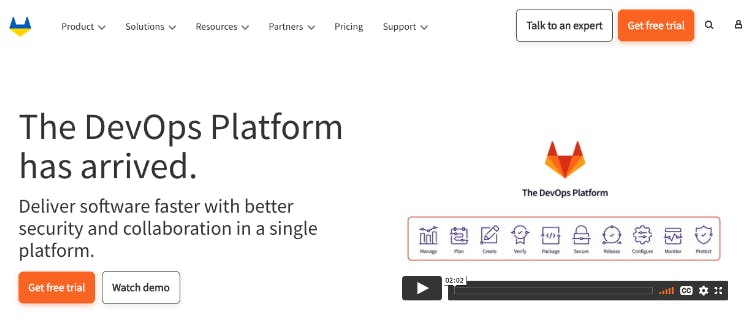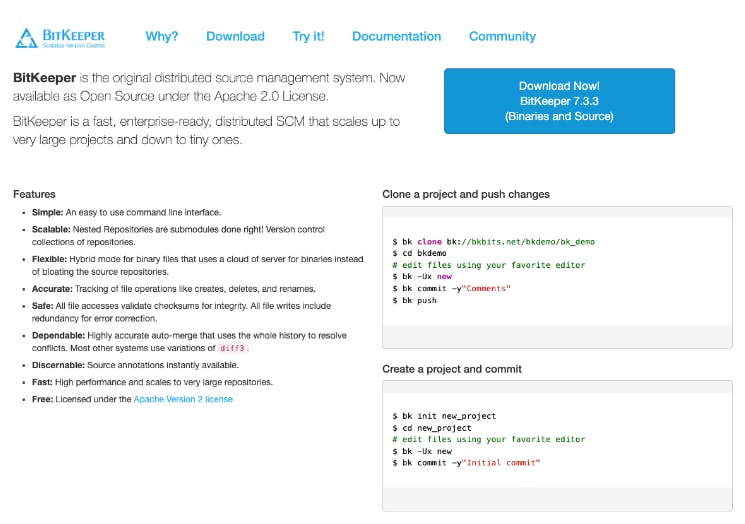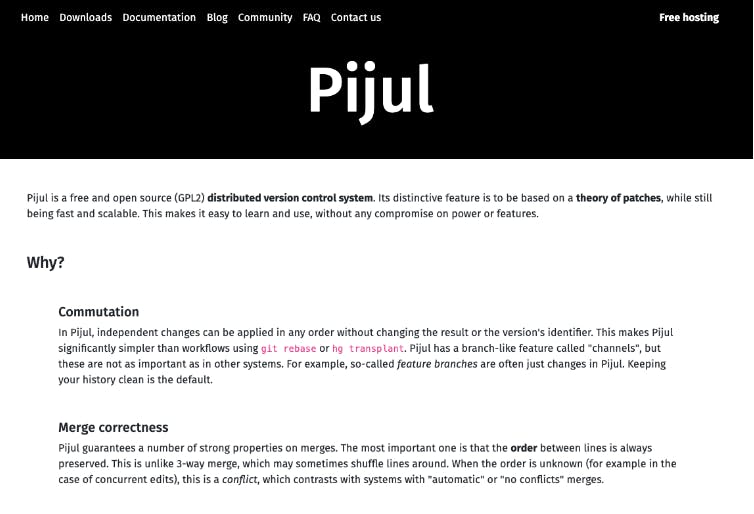Top 19 Free Online Version Control Software - Source Code Management 2022
Table of contents
- What is version control software?
- Stats and facts of the version control system market
- Why do I need version control software (VCS)?
- Our pick of 20 free online version control software
- 1. Git
- 2. Github
- 3. Apache Subversion (SVN)
- 4. Helix Core
- 5. Mercurial
- 6. Bitbucket
- 7. Concurrent Versions System (CVS)
- 8. Microsoft's Azure DevOps
- 9. Bazaar
- 10. Vershd
- 11. AWS CodeCommit
- 12. Monotone
- 13. Darcs
- 15. Liquibase
- 16. GitLab
- 17. CircleCI
- 18. BitKeeper
- Conclusion
- FAQ
- Is distributed version control better than centralized version control?
Remember the times of floppy discs? For those under 30, they looked like this, and back in the earlier ages of the internet, they were the way people used to store information.
So, how did developers work back then?
Every project had a master copy, usually under one person's control. Each engineer started his source code from a clone of the master copy and then created his backups. After developing a feature, it would be merged back into the master copy. Most teams had the crucial role of the librarian, in charge of merges and back-ups – which honestly doesn't sound like an entertaining job.
There was only one version of the source tree, and if a bug in an older version was reported while they were in the midst of a significant change, the team would have to wait until that was done before looking for the bug - no matter how critical that bug was. There was no way to store the current version or go back to a previous version.
Yes, it was all very tedious, and engineers were often faced with the brain-destroying task of comparing versions and figuring out what changed or not. A nightmare.
Then version control software arrived, and the workflow started to change.
So – if you are still not convinced – let's go through why you need to use version control software and which are the best 20 free online tools you can find in the market.
What is version control software?
A version control software (VCS) is a type of software designed to make software development more accessible and efficient by helping track changes in the source code (who made them, when they were made), roll back changes, and merge the ones coming from multiple developers.
Let's go back forty years again. In the pre-internet era, working methods were less efficient but not absolute chaos. Why was this?
Because teams were tiny, with no more than five people sitting one next to the other. Today, this would not be possible with large collaborative teams working remotely. Or – let's rephrase it – remote collaboration would not be possible without version control software.
There are three types of version control software:
- Local Version Control Software: All files are stored on a local disk, and any changes to a specific file are stored as a patch. Patches are like snapshots. They only show the differences between the previous file, but you don't have access to a complete picture unless you go backward.
- Centralized Version Control Software: There is only one central copy of the software, and every developer needs to “commit” the changes they make for them to be a part of the central copy. The biggest disadvantage is that there can be major code issues if the central server goes down.
- Distributed Version Control Software: Every developer has a local copy of the software – including all history. The main benefits are that engineers can work offline, and if a server presents any issue, it does not affect the entire project.
Stats and facts of the version control system market
According to a study by Future Market Insights, the global version control system market is anticipated to witness growth in revenue from $629.3 Mn in 2021 to $1,738.6 Mn in 3031 – a compound annual growth rate of 10.7%.
Some other trends:
- Digitalization and automation: There is a clear transition towards technological advancements that can help reduce human errors. Easy-to-use friendly solutions are the top pick.
- Digital transformation and app development: Software has emerged as the enabler of digital transformation. There is an increased investment in app development, mainly due to the adoption of smartphones and tablets.
- Source code management software: Version control systems functioning as standalone applications are now being integrated with various software offerings.
- Centralized version control systems are preferred: The segment is dominating the market with a share of around 64% by 2021.
- Distributed version control systems market is growing, though: The segment is expected to grow at a CAGR of 12.7% by the end of 2031.
- Cloud deployment is growing, too: The cloud segment is expected to register the highest CAGR of 10.4% until 2031 – as they can help reduce overall operating costs.
So, the market is growing – you get it. But how can version control systems help you? Let's dig into the benefits of these fantastic tools.
Why do I need version control software (VCS)?
Even if you are working independently, relying on version control software can be very useful. These are some of the things you can do with a VCS.
Easily track changes
Having organized information about who, what, when, and why changes have been made can be very useful when finding the root cause of a bug, for example, or when you want to use similar functionalities in a new development.
Collaborate remotely
While some people may imagine us developers as introverted people who like to work solely, the truth is collaboration is everything for us. Being able to contribute from anywhere and from any device, no matter the geographical location, is more than nice.
Increase productivity
A better-organized environment and collaboration tool can exponentially boost productivity and expedite product delivery. This is even valuable while working on your own on a project, as the tool allows you to use multiple computers simultaneously.
Reduce conflicts
When each developer works on a different feature of the same software, a separate branch is created. The changes aren’t merged into the original source code unless they are analyzed and green-lighted. No conflicts are allowed.
Rollback and undo changes
Of course, even while VCS helps prevent errors, crashes can happen. But don´t worry! You can easily roll back to a previous version if any mistake is made.
Offsite source code backup
When using a centralized or distributed VCS, a remote instance is hosted off-site to share changes between developers. In an unfortunate scenario like a broken computer, the remote VCS instance will still retain a copy of the source code.
Are you finding this info useful so far? If you are interested in code source management tools, check the following resources available in our townhall blog:
- Automated Code Review Tools for Developers in 2021
- The Engineer's Complete Guide to Legacy Code
- Top 5 VS Code extensions for Vue developers for 2022
Our pick of 20 free online version control software
Now it's time to dig into our preferred version control tools that are free of charge – or have an interesting free version – and can be used remotely. This guide covers an in-depth analysis of the following software:
- Git
- Github
- Apache Subversion (SVN)
- Data Version Control (DVC)
- Helix Core
- Mercurial
- Bitbucket
- Concurrent Versions System (CVS)
- Azure DevOps
- Bazaar
- Vershd
- AWS CodeCommit
- Monotone
- Darcs
- Plastic SCM
- Liquibase
- GitLab
- CircleCI
- BitKeeper
- Pijul
1. Git
Without a doubt, Git is the most popular version control system—also the protocol that Github and other tools use. It is a free and open-source distributed version control system, supported by most third-party platforms on the market and designed to handle everything from small to extensive projects with speed and efficiency.
Git top features
- Scalable
- Easy branching
- Cherry-picking (choose a commit from one branch and apply it to another)
Git reviews
“Since I met GIT, life has become much easier for me at work. It is the perfect platform for teamwork, even if it is only for yourself because it helps you keep the code updated and ordered. With GIT you can version the work, having several alternatives of the same branch, add comments and keep the code clean. The platform compresses the code and helps you decrease time by uploading large amounts of changes very fast”.
“It's a steep curve to learn, but well worth it”.
Git pros
- Good for collaboration
- Fast upload of changes
- Widespread (tons of libraries)
Git cons
- Steep learning curve
- Clashes occasionally
2. Github
GitHub takes things a little bit further as being a tool for Git since Git is the protocol. Apart from version control functionality, it offers a place online to store and collaborate on projects. It is the largest open-source hosting platform on the planet for coding, and it has a free plan that comes with unlimited public and private repositories.
Github top features
- GitHub Actions (automation)
- Code from anywhere
- Managed app development workflow
Github reviews
“Github is secure, promotes collaboration, and is free for the most part. The core features of git are free and for further more "niche" features you can get the enterprise plan”.
“Sometimes when there is a long pull request it can be quite tedious to look over and see recent changes. Also, bad merge operations can cause a world of trouble that is difficult to reverse."
Github pros
- Easy to use
- Secure stable hosting
- Integrations
Github cons
- Official documentation could improve
- No support for server-side technology (Like Python, NodeJS, ReactJS)
3. Apache Subversion (SVN)
Subversion (SVN) is an open-source versioning and revision control system developed by the Apache Software Foundation and became part of a rich community of developers and users. It used to be the most popular centralized version control system on the market, but most former users agree it is now kind of outdated.
Apache Subversion top features
- Interactive conflict resolution
- Merge tracking
- File locking
Apache Subversion reviews
“Easy to learn and use. Maintains different revisions of source code based within branches so it helps in reverting to previous versions if needed. Committing and merging the code is also pretty straightforward”.
“Subversion was a great solution for its time. If you are looking at it in 2019: please use git".
Apache Subversion pros
- Easy to set up
- Safe and stable storage
Apache Subversion cons
- Low performance with large files
- Many conflicts need to be solved manually
- Branches are not easy to create
4. Helix Core
Helix Core by Perforce is an open-sourced enterprise version management system where users connect to a shared file repository. Being a comprehensive solution for faster collaboration workflows, it integrates with Git and Visual Studio and supports all file types. There is a free version for up to 5 users and 20 workspaces – with no end date nor limits on features and functionality.
Helix Core top features
- Synchronized binary files
- Visual graphs and history
- Integrations with many IDEs and code editors
Helix Core reviews
“I love the interface! It's extremely simple to find what you are looking for and use it to complete tasks and the ability to easily track assets makes it one of the best products available for version control on the market”.
“It's a little glitchy when dealing with large amounts of files”.
Helix Core pros
- Scalable
- Friendly interface
- Good support documentation
Helix Core cons
- Minor glitching
- The paid version is expensive
- Difficult setup
5. Mercurial
Mercurial is a distributed version control software that provides many handy collaboration tools. An intuitive graphic interface makes it an easy-to-use, well-designed software.
Mercurial top features
- Collaboration tools
- GUI customer
- Integrations and extensions
Mercurial reviews
“Mercurial has all the features of a good distributed revision control system. Not only is it incredibly useful as a collaboration tool, I also find the ability to track changes and rollback to a specific revision invaluable for working by myself too”.
“With such wide adoption of git, mercurial can begin to lag behind on some of its plugins, especially those that allow interoperability with different repos. If you're using mercurial just as-is with its own repos, you should enjoy it quite well”.
Mercurial pros
- Easy to use
- Good IDE support (via third-party plugins)
- Good Desktop UIs available (such as TortoiseHg)
Mercurial cons
- Lack of a built-in system for file locking
- Fewer integrations than Git (but still widely supported)
6. Bitbucket
Bitbucket—built also on Git—is not only a version control system but a collaboration and code management solution for professional teams. The free plan is for up to 5 users but does have some limitations in building minutes and storage. However, the standard plan is only $3 per user, so it is a great option for those willing to start small and then scale.
Bitbucket top features
- Collaboration tools
- Built-in continuous delivery
- Integrates with Jira
Bitbucket reviews
“Bitbucket is one of the best tools for working with the CI /CD (Continuous Integrations & Continuous Development). Bitbucket provides an enhanced version of Github”.
“The only downside I can think of is the scaling costs associated with it for the paid plans. Bitbucket charges per user".
Bitbucket pros
- Great for collaboration
- Security and permission management
- Simple user interface
- CI/CD integration
Bitbucket cons
- Limited search feature
- Archiving repositories needs to be done manually
7. Concurrent Versions System (CVS)
Concurrent Versions System (CVS) is a version control system designed to help DevOps teams record the history of source files and detect bugs. It is a simple, easy-to-use system but has lagged far behind in feature development.
CVS top features
- Integrates with Unix System
- Centralized server
- Open-source
CVS reviews
“CVS is a version control system. It's simple and less complex and has even a good UI to make it easier. It's good for a beginner and probably if you have a lesser number of developers in the team”.
“Not possible to manage merges well. Doesn´t have more advanced features”.
CVS pros
- Easy to learn and use
- Good UI
CVS cons
- Community support is not great
- Conflicts when merging
- Limited functionalities
8. Microsoft's Azure DevOps
Azure DevOps simplifies software development via source code and package control, testing, and apps deployment automation. It has a free version for individuals and small teams that includes unlimited cloud-hosted free private repos.
Azure DevOps top features
- Agile planning tools (such as Kanban boards)
- CI/CD pipelines
- Testing tools
Azure DevOps reviews
“Azure DevOps project is by far the best planning tool. We use it to streamline processes and create a project lifecycle within teams. Azure boards help in assigning /tracking tasks to completion. As a result, the development speed is quick, and everybody has an aerial view of the tasks. Additionally, the tool is user-friendly and intuitive”.
“I find it a bit difficult to navigate through. Due to the large scope of functionality, I find myself with too much info at times. From your menu to the left, it branches out to so many different pages”.
Azure DevOps pros
- Great for collaboration and planning
- Easy to use
- Great UI
Azure DevOps cons
- Integration with the other tools is complex
- Slow learning curve
9. Bazaar
Bazaar is a decentralized open-source version control system that helps you track project history over time and to collaborate easily with others. Unfortunately, it is not a very popular tool and lacks support.
Bazaar top features
- Web visualization
- Open-source
- Third-party integrations
Bazaar reviews
“Support from Canonical, everything is clearly detailed. Also, this Source control management tool is decentralized, like git, mercurial, or others. This means you can live and work outside a centralized server”.
“In general it fulfills its function, but it's a bit difficult to maintain and administer, basically the permissions of the users and the rights with the different branches. But the main problem of Bazaar is that there have been no releases since 2011!!”
Bazaar pros
- Lightweight
- Easy to set up and use
Bazaar cons
- Small community (not very popular)
- No new releases
10. Vershd
Vershd is the effortless Git UI for Windows, Mac, and Linux. Probably showcasing the easiest, cleaner interface. Unfortunately, the free plan is only available for personal users, charities, non-profits, educational institutions, and trade unions.
Vershd top features
- Commit search
- Cherry-pick made easy
- Preview
Vershd reviews
“Vershd, is a handy and simple tool for anyone who wants to use Git in a visual way. This is a Git repository browser with an integrated visual differences and merge tool. It is written in Python, uses the cross-platform GUI toolkit and wxPython, and was super easy to use even for a non-coder like myself”.
“No phone support for this tool. In case any commits have to be pushed while you are on the go, it needs to wait until you get hold of a PC”.
Vershd pros
- Easy to use
- Excellent GUI
- Cross-platform
Vershd cons
- Expensive for teams
- No phone support
11. AWS CodeCommit
AWS CodeCommit by Amazon Web Services is a secure, highly scalable, managed source control service that hosts private Git repositories. The free plan is for up to five active users, and each additional user is $1 per month.
AWS CodeCommit top features
- Fully managed
- Integrated with Git tools
- Customizable user accesses
AWS CodeCommit reviews
“AWS Code Commit is a version control system that helps easily manage and maintain our projects. The user interface is very easy and has very good documentation and community support so it is easy to learn”.
“Initial configuration is quite tricky to set up, AWS can improve the tutorials with better examples”.
AWS CodeCommit pros
- Easy third-party integrations
- Good UI
- Fast
- Secure
*AWS CodeCommit cons
- Not easy to set up
- Limited features
12. Monotone
Monotone is a free distributed version control system that provides a simple, single-file transactional version store with an efficient peer-to-peer synchronization protocol. It has some performance issues and is not very popular, so there is little community support.
Monotone top features
- Can import CVS projects
- Efficient Netsync protocol
- Internalization support
Monotone reviews
“Monotone is supported on all operating systems and developer platforms. It manages storage of multiple versions of files and folders efficiently with no glitches and lapses”.
“Although it looks a lot like CVS it has some differences in the organization that slowed my development flow”.
Monotone pros
- Supported by most common operating systems
- Stable GUI
- Easy to learn
Monotone cons
- Some performance issues
- Not very popular
13. Darcs
Even though Darcs is not a very popular version control software, it does have some major pros. Being a distributed system, it offers the possibility to work offline and on parallel developments by creating local forks connected to the main source. However, the main pitfall is that it is only suited for small or mid-sized projects, and it does not scale. Too bad.
Darcs top features
- Offline mode
- Smart revision control
- Parallel development
Darcs reviews
“Does an incredible job of keeping all of your ongoing work together and still separable. No more disjointed branches and continual rebasing”.
“Unfortunately, darcs does not scale. Whether that's inherent or not, I don't know. But if it did, I know I'd definitely prefer to use darcs in a large collaborative effort than git”.
Darcs pros
- Interactive easy-to-use interface
- Easy branching and merging
- Cross-platform
Darcs cons
- Managing patches is not easy
- Not very popular
- Does not scale
14. Plastic SCM
Plastic SCM is a full version control stack with cross-platform GUIs, built-in semantic diffs, branching, and merging. It supports large files and huge repos and includes an artist-devoted GUI with specific workflows. Even though it is not entirely free, it has a free version for up to 3 users – plus, you get unlimited users for only $7 a month.
Plastic SCM top features
- 3-way merge tools
- Cloud hosting
- Distributed, multisite and centralized
Plastic SCM reviews
“It has a robust version control system that is by far the best in the industry, especially for game development projects, as they have really large files which Git fails to optimize. Its branch resolution feature is also one of the best”.
“It's pretty complex for first use, and I will not recommend it for small projects and teams, there are not enough tutorials available and documentation can be quite confusing for advanced topics”.
Plastic SCM pros
- Supports large files
- Fast
- Good GUI
Plastic SCM cons
- Steep learning curve
- Lack of documentation
15. Liquibase
Liquibase is an open-source project that helps track, version, and deploy database changes. It integrates smoothly into CI/CD pipelines, and its free version offers quite enough functionalities.
Liquibase top features
- Flexible schema change
- Auto-generate scripts
- Integrations and extensions
Liquibase reviews
“Liquibase provides Seamless integration into CI/CD pipelines, ensuring code and database remain in lockstep. A friendly web console provides a view into which environments have received a specific changeset, enabling a complete view of the database landscape. Finally, their support is on-point! Very friendly support from knowledgeable people who are obviously passionate about this product”.
“The documentation provided by Liquibase is a little unclear at some points”.
Liquibase pros
- Seamless integration into CI/CD pipelines
- Flexible
- Good support
Liquibase cons
- Unclear documentation
- No Java migration piece
16. GitLab
GitLab provides a comprehensive version control solution to deliver better software faster in a single platform, simplifying how to implement version control. It offers free-forever features for individual users, but it gets pretty expensive for teams.
GitLab top features
- Unlimited private repositories
- Automatic scan for code quality and security
- Built-in CI/CD
GitLab reviews
“GitLab is a great integrated SCM, Issue Management, and CI/CD solution which is a pleasure to work with. The tools feel very nicely integrated and cooperate very well”.
“GitLab can be quite overwhelming. It is particularly difficult for non-experts from the non-software sector to get to know the processes of GitLab, as GitLab is less focused on gamification aspects compared to GitHub”.
GitLab pros
- User-friendly interface
- Visual code comparison
- Stable
GitLab cons
- Not very easy to use
- Expensive paid version
17. CircleCI
Circle CI is a continuous integration platform designed to improve engineering team productivity, release better products, and get to market faster. The free cloud plan includes up to 6,000 build minutes per month.
CircleCI top features
- Failed test cases visualization
- Automated workflows
- Built-in assistance
CircleCI top reviews
“Configuring a project is easy with CircleCI compared to other CI tools. And the UI is much more straightforward. Even a beginner can understand and perform the tasks”.
“The way CircleCI provides to manage environment variables is a bit messy”.
CircleCI pros
- Intuitive UI
- Easy to use
- Large community support
CircleCI cons
- Multiple branches organization is quite messy
- Expensive paid plan
18. BitKeeper
BitKeeper is a fast, enterprise-ready, distributed SCM that scales up to substantial projects and down to tiny ones. It is free, open-source, and features a simple-to-use command-line interface.
*BitKeeper top features
- Nested repositories
- Highly accurate auto-merge
- Scales to very large repositories
BitKeeper reviews
“It's an excellent version control tool and works really well. Best suitable for enterprise-level and usable for open source projects. The user interface is super fantastic and good when interacting with the device”.
“A little bit confusing for beginners. The rest is all good”.
BitKeeper pros
- Great UI
- Open-source
BitKeeper cons
- Steep learning curve
- Limited functionalities
- No developer support
19. Pijul
Last but not least, we would like to introduce a new free, open-source tool that sounds intriguingly promising. Pijul is a distributed version control system with the distinctive feature of being based on a theory of patches and is expected to be fast, scalable, and easier to learn and use than Git. For now, it is just available as a beta release.
Pijul top features
- Commutable changes
- Partial clones
- Bootstrapped
Pijul reviews
Sorry, you will need to try it yourself. This is a very new tool!
Pijul pros
- Easy to learn and use
- Fast
- Scalable
Pijul cons
- Beta version only
Conclusion
When we start reviewing tools, we always hope to find an unknown exceptional solution that no one has seen yet.
The truth is that most popular tools are popular for a reason, and being widespread increases the efforts for new developments and improvements.
Sorry to disappoint you guys – but this time, our decision will be between Git and Github, the two most capable version control software.
While Most third-party platforms support git on the market, it is scalable and good for collaboration. It does have a steep learning curve and is not the friendliest UI.
Github, on the other hand, apart from version control functionality, offers a place online to store and collaborate on projects. Plus, its free plan comes with unlimited public and private repositories! It looks like we have a winner.
However, many other options are also worth taking a look at. Check the comparison table of our preferred 20 free version control software:
| Repository model | Hosting | Features | Adoption & support | Ease of use | |
| Git | Distributed | Cloud-based | ✔ | ✔ | somewhat |
| Github | Distributed | Cloud-based and self-hosted | ✔ | ✔ | ✔ |
| Apache Subversion (SVN) | Centralized | Cloud-based and self-hosted | Limited | somewhat | ✔ |
| Data version control (DVC) | Distributed | Cloud-based and self-hosted | Limited | ❌ | ✔ |
| Helix Core | Distributed | Cloud-based | ✔ | ✔ | somewhat |
| Mercurial | Distributed | Cloud-based and self-hosted | ✔ | ❌ | ✔ |
| Bitbucket | Distributed | Cloud-based | Limited | ✔ | ✔ |
| Concurrent Versions System (CVS) | Centralized | Client-server | Limited | Limited | ✔ |
| Azure DevOps | Distributed & centralized | Cloud-based & client-server | ✔ | ✔ | ✔ |
| Bazaar | Distributed & centralized | Client-server | Limited | ❌ | ✔ |
| Vershd | Distributed | Cloud, SaaS, Web-Based | Limited in free plan | somewhat | ✔ |
| AWS CodeCommit | Distributed | Cloud-based | Limited | ✔ | somewhat |
| Monotone | Distributed | Client-server | ✔ | ❌ | ✔ |
| Darcs | Distributed | Client-server | ✔ | ❌ | ✔ |
| Plastic SCM | Distributed, multisite, and centralized | Cloud-based | ✔ | ✔ | ❌ |
| Liquibase | Distributed | Client-based | Limited | ✔ | ✔ |
| GitLab | Distributed | Cloud-based & on-premises | Limited | ✔ | somewhat |
| Circle CI | Distributed | Cloud-based & on-premises | Limited | ✔ | ✔ |
| BitKeeper | Distributed | Cloud-based & on-premises | Limited | ❌ | ✔ |
| Pijul | Distributed | Client-based | Developing | somewhat | ✔ |
Overall, you need to get ahead of what's going on in the tech world as new tools are being developed every day and today's winner might not be tomorrow´s pick.
Did you know that Hashnode is a free blogging platform that has one of the most active communities of developers, with close to two million tech people? And the best part is that our blogging platform is entirely free and has no ads or paywall.
Get started today!
FAQ
What are the benefits of version control software?
Version control software can help easily track changes and collaborate remotely, reducing merge conflicts and increasing productivity. Other useful benefits are the possibility to roll back and undo changes and having an off-site source code backup (the latter is a feature that not all the systems offer).
Is a client-server model better than a cloud-based one?
No. Client-server systems use the in-house infrastructure, while cloud-based storage is off-site in a third-party vendor and is accessible via the Internet. Reputable cloud service providers have multi-level firewalls and other robust security tools – a level of protection that would be expensive for a company to sustain.
Is distributed version control better than centralized version control?
Both have pros and cons. While distributed version control is faster because you don't need to communicate with the remote server for every command, centralized systems are easier to use and perform better with binary files.
👋 Hello, I'm Eleftheria, Community Manager at Hashnode, developer, public speaker, and chocolate lover.
🥰 If you liked this post please share.






